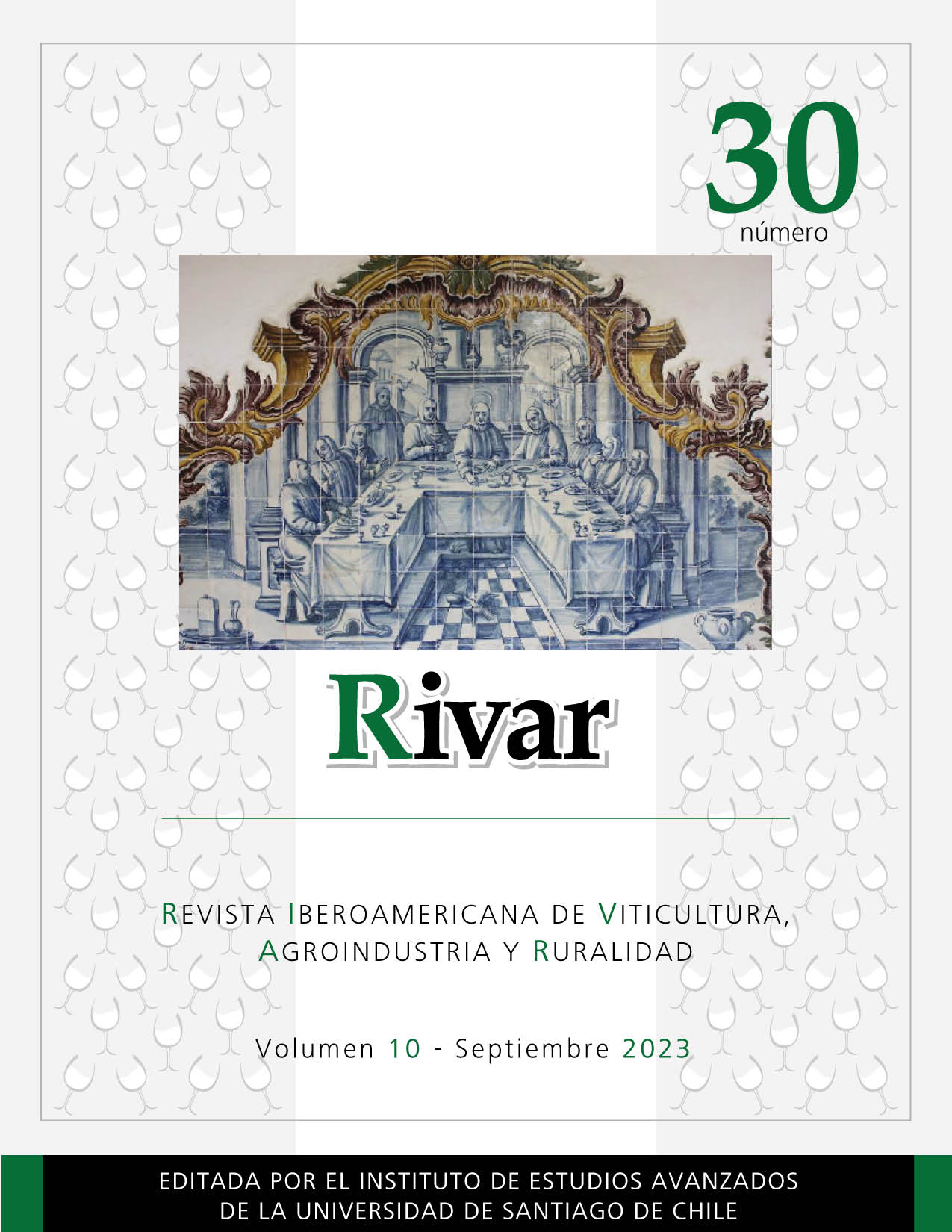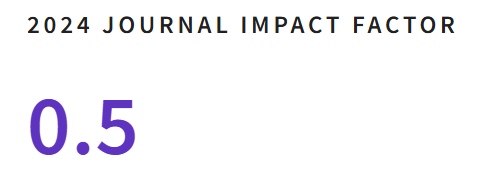Produce or Not Produce Certified Foods? An Exploratory Analysis from Portugal
DOI:
https://doi.org/10.35588/rivar.v10i30.5842Palavras-chave:
rural provenance foods, food certification schemes, food producers, impacts of productionResumo
The certification of origin and quality of rural provenance foods paves routes of protection and promotion of the products and the territories. While the importance of certification at socioeconomic, policy, and consumption levels has been addressed in previous research, the views of other key stakeholders—the producers—remain somehow underexplored. The present study contributes to this topic by analyzing data from a survey of producers (n=104) working with urban specialty shops located in three Portuguese cities. The sample was examined considering the differences between those who produce certified food products (n=74) and those who do not (n=30). Chi-square tests were used to compare the socio-demographic features, type of products produced and selling venues. Independent samples T-tests were applied to compare the differences between producers’ motivations, perceived challenges, and impacts of the production. Findings indicate that producers of certified products have distinct motivations, and value different aspects of their productions, namely to contribute to sustainable and healthier production and consumption and to the preservation of local and traditional ways of producing. They also perceive more positive economic impacts on rural places of provenance and tend to value more the Portuguese food products’ image.
Downloads
Referências
Amilien, V. and Hegnes, A.W. (2013). “The Dimensions of ‘Traditional Food’ in Reflexive Modernity: Norway as a Case Study.” Journal of the Science of Food and Agriculture 93(14): 3455-3463. DOI https://doi.org/10.1002/jsfa.6318
Bardone, E. and SpalvÄ“na, A. (2019). “European Union Food Quality Schemes and the Transformation of Traditional Foods into European Products in Latvia and Estonia.” Appetite 135: 43-53. DOI https://doi.org/10.1016/j.appet.2018.12.029
Belletti, G. and Marescotti, A. (2021). Evaluating Geographical Indications. Guide to Tailor Evaluations for the Development and Improvement of Geographical Indications. Rome, FAO.
Bentivoglio, S.; Savini, S.; Finco, A.; Bucci, G. and Boselli, E. (2019). “Quality and Origin of Mountain Food Products: New European Label as a Strategy for Sustainable Development”. Journal of Mountain Science 16: 428- 440. DOI https://doi.org/10.1007/s11629-018-4962-x
Bowen, S. and De Master, K. (2011). “New Rural Livelihoods or Museums of Production? Quality Food Initiatives in Practice.” Journal of Rural Studies 27(1): 73-82. DOI https://doi.org/10.1016/j.jrurstud.2010.08.002
Bureau, J. and Valceschini, E. (2003). “European Food-Labeling Policy: Successes and Limitations.” Journal of Food Distribution Research 34(3): 71-76.
Burton, R.; Fourney, J.; Stock, P. and Sutherland, L. (2021). The Good Farmers: Culture and Identity in Food and Agriculture. London, Routledge.
Coyne, L.; Kendall, H.; Handsa, R.; Reed, M. S. and Williams, D.J.L. (2021). “Identifying Economic and Societal Drivers of Engagement in Agri-Environemtnal Schemes for English Dairy Producers.” Land Use Policy 101: 105174. DOI https://doi.org/10.1016/j.landusepol.2020.105174
Demartini, G.; Gaviglio, A. and Pirani, A. (2017). “Farmers’ Motivation and Perceived Effects of Participating in Short Food Supply Chain: Evidence from a North Italian Survey.” Agricultural Economics 63(5): 204-216. DOI https://doi.org/10.17221/323/2015-AGRICECON
DeSoucey, M. (2010). “Gastronationalism: Food Traditions and Authencity Politics in the European Union.” American Sociological Review 75(3): 432-455. DOI https://doi.org/10.1177/0003122410372226
Figueiredo, E. (2021). “Rural Provenance Food as Cultural Heritage: A Way of Promoting Territorial Development.” In Oliveira, E.; Amaro, A. and Melro, A. (Eds.). Handbook of Research on Cultural Heritage and Its Impact on Territory Innovation and Development. Pennsylvania, IGI Global: 114-137.
Figueiredo, E.; Forte, T.; Eusébio, C.; Silva, A. and Couto, J. (2022). “Rural Ties and Consumption of Rural Provenance Food Products – Evidence from the Customers of Urban Specialty Stores in Portugal.” Foods 11: 547. DOI https://doi.org/10.3390/foods11040547
Fonte, M. (2008). “Knowledge, Food and Place. A way of producing, a way of Knowing.” Sociologia Ruralis 48(3): 200-222. DOI https://doi.org/10.1111/j.1467-9523.2008.00462.x
Hartman, M.; Yeh, C.; Amilien, V. and An‡, Z. (2018). Strengthening European Food Chain Sustainability by Quality and Procurement. Policy Deliverable 8.1 Technical Report Strenght2Food. Brussels, European Commission.
Ilbery, B. and Kneafsey, M. (2000). “Producer Constructions of Quality in Regional Specialty Food Production: A Case Study from South West England.” Journal of Rural Studies 16(2): 217- 230. DOI https://doi.org/10.1016/S0743-0167(99)00041-8
Kneafsey, M.; Venn, L. and Bos, E. (2017). “Consuming Rural Connections: Tracing Leeks Back to their Roots.” In Miele, M.; Higgins, V.; Bjørkhaug, H. and Truninger, M. (Eds.). Transforming the Rural: Global Processes and Local Futures. Bingley, Emerald: 197-220.
Pellin, V.; Ribeiro, J. and Mantovaneli, O. (2016). “Contribuições dos produtos tradicionais para o território: a experiência do queijo Serra da Estrela em Portugal.” Revista Territórios & Fronteiras 9(1): 264-284. DOI https://doi.org/10.22228/rt-f.v9i1.430
Renting, H.; Marsden, T.K. and Banks, J. (2003). “Understanding Alternative Food Networks: Exploring the Role of Short Food Supply Chains in Rural Development.” Environment and Planning A: Enonomy and Space 35(3): 393-411. DOI https://doi.org/10.1068/a3510
Rodrigo, I.; Cristovão, A.; Tibério, M.L.; Baptista, A.; Maggione, L. and Pires, P. (2015). “The Portuguese Agrifood Traditional Products: Main Constraints and Challenges.” Revista de Economia e Sociologia Rural 53(1): 23-32. DOI https://doi.org/10.1590/1234-56781806-94790053s01002
Silva, A.; Figueiredo, E.; Truninger, M.; Eusébio, C. and Forte, T. (2021). “A Typology of Urban Specialty Shops Selling Rural Provenance Food Products – A Contribution from Portugal.” British Food Journal, 123: 3902-3917.
Silvasti, T. (2003). “The Cultural Model of ‘the Good Farmer’ and the Environmental Question in Finland.” Agriculture and Human Values 20: 143-150. https://doi.org/10.1023/A:1024021811419
Tregear A.; Arfini, F.; Belletti, A. and Marescotti, A. (2007). “Regional Foods and Rural Development: The Role of Product Qualification.” Journal of Rural Studies 23: 12-22. https://doi.org/10.1016/j.jrurstud.2006.09.010
Tibério, M. and Diniz, F. (2012). “Agri-Food Traditional Products: from Certification to the Market – Portuguese Recent Evolution.” Regional Science Inquiry Journal 4(2): 57-86.
Van der Ploeg, J.D. and Roep, D. (2003). “Multifunctionality and Rural Development: The Actual Situation in Europe.” In van Huylenbroeck, G. and Durand, G. (Eds.). Multifunctional Agriculture. A New Paradigm for European Agriculture and Rural Development. Aldershot, Ashgate: 37-54.
VelÄovská, S. (2016). “Food Quality Labels from the Producers’ Perspective.” Journal of Central European Agriculture 17(3): 815-834. DOI https://doi.org/10.5513/JCEA01/17.3.1779









